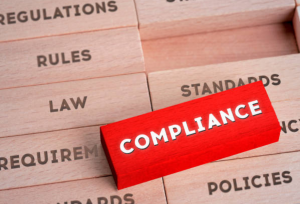How Inflation Impacts Business and Personal Finance
Inflation is one of the most significant economic forces that affects both businesses and individuals. Defined as the general rise in prices of goods and services over time, inflation reduces the purchasing power of money and influences decision-making at every financial level. Whether you are running a business or managing your household budget, understanding how inflation works is essential for planning, adapting, and protecting financial stability.
The Effect of Inflation on Businesses
For businesses, inflation often translates into higher operating costs. Prices of raw materials, energy, and transportation rise, forcing companies to either absorb the additional expenses or pass them on to consumers. This creates pressure on profit margins and can even reduce competitiveness in industries where price sensitivity is high. Small businesses are often hit the hardest because they lack the scale and bargaining power of larger corporations. For example, a family-owned restaurant may struggle with rising costs of food ingredients, utilities, and staff wages, making it difficult to maintain profitability without raising menu prices. Inflation also affects long-term planning, as uncertain price trends complicate investment decisions and expansion strategies.
How Inflation Impacts Consumers and Personal Finance
At the individual level, inflation reduces the value of money. This means that the same amount of income buys fewer goods and services compared to previous years. Essential expenses such as groceries, rent, and fuel tend to rise quickly, putting pressure on household budgets. Without proper financial planning, inflation can lead to reduced savings, increased debt, and financial stress. For savers, inflation erodes the real value of money stored in low-interest accounts. For instance, if savings grow at 2% annually while inflation is at 5%, the saver is effectively losing purchasing power. This highlights the importance of investing in assets that can outpace inflation, such as stocks, real estate, or inflation-protected securities.
Wages and Purchasing Power
While wages may increase over time, they often fail to keep up with inflation. When the cost of living rises faster than income, purchasing power declines. This creates a gap between what people earn and what they need to spend to maintain their standard of living. In turn, consumers may cut back on discretionary spending, which impacts businesses that rely on non-essential purchases.
The Investment Angle

Inflation also influences investment strategies. Fixed-income assets like bonds tend to lose value during inflationary periods because their returns remain static while prices rise. On the other hand, tangible assets such as property, gold, or commodities often gain appeal since they typically hold value or appreciate during inflation. For both businesses and individuals, diversifying investments becomes an important strategy to hedge against inflationary pressures.
Debt and Borrowing in an Inflationary Climate
Interestingly, inflation can sometimes benefit borrowers. Since the value of money decreases over time, repaying loans with “cheaper” currency can ease debt burdens, provided wages and revenues rise alongside inflation. However, higher interest rates—often used by governments to control inflation—make borrowing more expensive. This creates challenges for businesses looking to finance growth and for individuals taking out mortgages, car loans, or credit.
Adapting to Inflation
Both businesses and individuals can adapt to inflation with proactive strategies. For companies, this may involve improving efficiency, renegotiating supplier contracts, or innovating to offer better value to customers. For individuals, building an emergency fund, investing wisely, and budgeting with inflation in mind are key to financial resilience. Staying informed about economic trends also helps in making better long-term decisions.
Inflation impacts every layer of financial life, from business operations to personal spending. Rising prices affect profitability, savings, investments, and overall purchasing power. While inflation is an unavoidable part of the economic cycle, understanding its effects and adopting smart strategies can minimize its risks. Whether you are running a business or managing personal finances, staying financially adaptable is the best defense against inflation.…











 This document provides a snapshot of your company’s revenues, expenses, and net profit over a specific period. It allows you to assess how well you’re generating income and managing costs. So be sure to examine your total revenue for the month. Compare it to previous months or the same period last year to spot any trends – are sales increasing or declining?
This document provides a snapshot of your company’s revenues, expenses, and net profit over a specific period. It allows you to assess how well you’re generating income and managing costs. So be sure to examine your total revenue for the month. Compare it to previous months or the same period last year to spot any trends – are sales increasing or declining? Conducting monthly financial check-ins is crucial for every business owner. It allows you to assess the health of your company’s finances and make informed decisions moving forward. By reviewing your income statement, analyzing cash flow, monitoring accounts receivable aging, and auditing expenses, you can stay on top of your financial situation.…
Conducting monthly financial check-ins is crucial for every business owner. It allows you to assess the health of your company’s finances and make informed decisions moving forward. By reviewing your income statement, analyzing cash flow, monitoring accounts receivable aging, and auditing expenses, you can stay on top of your financial situation.…



 Another important skill to have is the ability to conduct technical analysis. This involves studying past price movements to determine future trends. By looking at chart patterns, indicators, and other tools, traders can make better decisions about when to buy or sell a particular asset. Be sure to research these concepts and use them to your advantage when trading. Having a solid technical analysis
Another important skill to have is the ability to conduct technical analysis. This involves studying past price movements to determine future trends. By looking at chart patterns, indicators, and other tools, traders can make better decisions about when to buy or sell a particular asset. Be sure to research these concepts and use them to your advantage when trading. Having a solid technical analysis 


 If you have a home loan with a low-interest rate, refinancing can help you pay it off sooner. Refinancing to a higher interest rate will increase your monthly payments and pay off your loan faster. Refinancing can also help if you’re having trouble making your monthly payments. Lowering your interest rate can lower your monthly payment and make it more affordable. Refinancing can also help you get cash out of your home equity. If you have equity in your home, you can refinance to a loan with a higher interest rate and use the extra cash for things like home improvements or debt consolidation.
If you have a home loan with a low-interest rate, refinancing can help you pay it off sooner. Refinancing to a higher interest rate will increase your monthly payments and pay off your loan faster. Refinancing can also help if you’re having trouble making your monthly payments. Lowering your interest rate can lower your monthly payment and make it more affordable. Refinancing can also help you get cash out of your home equity. If you have equity in your home, you can refinance to a loan with a higher interest rate and use the extra cash for things like home improvements or debt consolidation. If you purchased your home with a down payment of less than 20%, you are likely required to pay private mortgage insurance (PMI). This is an added cost to your monthly mortgage payment. However, when you refinance your home loan, you may be able to remove PMI if the new loan amount is 80% or less of the appraised value of your home.
If you purchased your home with a down payment of less than 20%, you are likely required to pay private mortgage insurance (PMI). This is an added cost to your monthly mortgage payment. However, when you refinance your home loan, you may be able to remove PMI if the new loan amount is 80% or less of the appraised value of your home.
 When starting a business, it is vital to have a realistic budget. It means that you need to consider all of your expenses, including rent, staff salaries, marketing costs, and more. Be honest with yourself and make sure that your budget reflects the reality of running a business. If you are not realistic with your budget, you will quickly find yourself in financial trouble.
When starting a business, it is vital to have a realistic budget. It means that you need to consider all of your expenses, including rent, staff salaries, marketing costs, and more. Be honest with yourself and make sure that your budget reflects the reality of running a business. If you are not realistic with your budget, you will quickly find yourself in financial trouble. When starting a business, you need to decide what type of structure it will have. There are four common types of business structures. Each one has its own set of benefits and drawbacks, so it is vital to research all of your options before deciding.
When starting a business, you need to decide what type of structure it will have. There are four common types of business structures. Each one has its own set of benefits and drawbacks, so it is vital to research all of your options before deciding.
 To qualify for a Tax Refund Cash Advance Emergency Loan, you will need to provide proof of income and your tax return. You may also be required to have good credit or no credit at all. If you do not meet these qualifications, there are other options available, such as payday loans that can get approved even with poor financial history.
To qualify for a Tax Refund Cash Advance Emergency Loan, you will need to provide proof of income and your tax return. You may also be required to have good credit or no credit at all. If you do not meet these qualifications, there are other options available, such as payday loans that can get approved even with poor financial history. The interest rates for a Tax Refund Cash Advance Emergency Loan can vary depending on the lender. However, most loans charge an annual percentage rate (APR) of around 36%. This is much higher than traditional bank loans, but it is still lower than the APRs charged by payday lenders.
The interest rates for a Tax Refund Cash Advance Emergency Loan can vary depending on the lender. However, most loans charge an annual percentage rate (APR) of around 36%. This is much higher than traditional bank loans, but it is still lower than the APRs charged by payday lenders.


